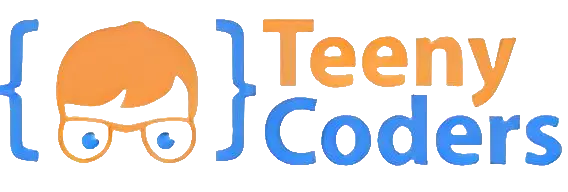Programming on computer has become an essential skill in today’s digital age. As technology continues to advance, learning how to code has become increasingly valuable, and it’s never too early to start. Teaching kids programming at a young age not only develops their logical thinking and problem-solving abilities but also equips them with tools to thrive in a technology-driven world. In this article, we will explore various ways in which kids can learn programming on computer, providing them with a solid foundation for their future endeavors.
Introduction: Why Teach Kids Programming?
In today’s digital landscape, programming has become a vital skill for the future. By introducing kids to coding at an early age, we empower them to understand and shape the technology they interact with daily. Learning programming enhances their problem-solving abilities, logical thinking, creativity, and perseverance. It also fosters critical skills such as computational thinking, algorithmic understanding, and debugging. Teaching kids programming allows them to become creators rather than just consumers of technology.
Table of Contents
Choosing the Right Programming Language for Kids
When introducing kids to programming, it’s crucial to select a programming language that is beginner-friendly and suitable for their age group. Some popular programming languages for children include Scratch, Blockly, Python, and JavaScript. Each language has its own benefits, and the choice depends on factors such as simplicity, visual appeal, and the availability of learning resources.
Interactive Coding Platforms for Children
Interactive coding platforms designed specifically for kids provide an engaging and interactive learning environment. These platforms offer intuitive interfaces, colorful visuals, and drag-and-drop functionality to help children grasp programming concepts. Examples of such platforms include Code.org, Scratch, and TeenyCoders, which provide step-by-step tutorials and projects to ignite kids’ interest in coding.
Gamified Learning: Turning Programming into Play
Gamification is an effective way to make programming enjoyable for kids. By turning coding lessons into games, children are motivated to learn while having fun. Coding games like CodeCombat, Lightbot, and Roblox Studio offer exciting challenges, puzzles, and quests that enable kids to learn programming concepts in a playful and interactive manner.

Online Coding Courses and Tutorials for Kids
Online coding courses and tutorials provide comprehensive learning experiences for kids interested in programming. Platforms such as Udemy, Coursera, and Khan Academy offer a wide range of programming courses tailored to different age groups and skill levels. These courses provide structured lessons, video tutorials, coding exercises, and quizzes to ensure a well-rounded learning experience.
Coding Clubs and Summer Camps
Coding clubs and summer camps offer opportunities for kids to engage with like-minded individuals and learn programming in a social and collaborative setting. These environments foster creativity, teamwork, and the exchange of ideas. Organization like STEM.org provide supportive communities where children can explore coding together and receive guidance from experienced mentors.
Utilizing Educational Apps and Software
There is a plethora of educational apps and software available that introduce kids to programming concepts through interactive experiences. Apps like Hopscotch, Kodable, and Swift Playgrounds allow children to learn coding through games, puzzles, and challenges directly on their computers or tablets. These apps provide an accessible and entertaining way for kids to delve into the world of programming.
Integrating Programming into School Curriculum
Many schools are recognizing the importance of programming and incorporating it into their curriculum. By introducing coding as a subject, schools ensure that children receive structured programming education along with their regular studies. Integrating programming into the school curriculum helps create a seamless learning experience and allows students to explore and apply coding principles in various subjects.
Engaging Projects and Challenges for Hands-On Learning
Hands-on learning is essential for kids to grasp programming concepts effectively. By assigning engaging projects and challenges, children can apply their coding knowledge to real-world scenarios. Encouraging them to create interactive stories, games, or even simple websites enhances their understanding and encourages creativity.
Building a Personal Portfolio of Coding Projects
Encouraging kids to build a personal portfolio of their coding projects is an excellent way to showcase their skills and progress. Having a portfolio allows children to demonstrate their coding abilities to peers, teachers, and even potential employers in the future. It also instills a sense of pride and accomplishment, boosting their confidence in their coding journey.
Encouraging Collaboration and Peer Learning
Collaboration and peer learning play a significant role in a child’s programming journey. Encouraging kids to collaborate with their peers on coding projects or participate in coding clubs helps them develop teamwork, communication, and problem-solving skills. Peer learning provides an opportunity for children to share ideas, learn from each other’s experiences, and support one another.
Parental Involvement and Support
Parents can actively participate in their child’s programming education by offering support and encouragement. Engaging in coding activities together, assisting with troubleshooting, and celebrating achievements create a positive learning environment. Parental involvement fosters a love for learning and nurtures a child’s passion for programming.
Creating a Positive Learning Environment
Creating a positive learning environment is crucial when teaching kids programming. Making the learning process enjoyable, celebrating achievements, and focusing on the progress rather than the outcome can significantly impact a child’s motivation and engagement. By fostering a supportive and encouraging atmosphere, children are more likely to develop a lifelong interest in programming.
Enhancing Skills with Coding Competitions
Participating in coding competitions can be an exciting and rewarding way for kids to enhance their programming skills. Competitions like the First Lego League, Google Code Jam, and International Olympiad in Informatics offer challenges and opportunities for young coders to showcase their talent, test their abilities, and learn from peers.
15. Conclusion
Learning programming at a young age empowers kids with invaluable skills for the future. By exploring various avenues such as interactive platforms, gamified learning, coding clubs, and online courses, children can embark on an exciting coding journey. Parental involvement, collaboration, and a positive learning environment play pivotal roles in nurturing a child’s programming abilities. With dedication, practice, and continuous learning, kids can develop their programming skills and unlock a world of opportunities.
Frequently Asked Questions (FAQs)
Q1. At what age can kids start learning programming?
Q2. Which programming language is best for kids to start with?
Q3. How can parents support their child's programming journey?
Q4. Are there any programming competitions for kids?
Q5. Can learning programming help with problem-solving skills?
Feedback
Teaching kids programming on computer sets them on a path to acquire essential skills, unleash their creativity, and navigate the digital world with confidence. By utilizing the outlined strategies and resources, parents and educators can provide children with a solid foundation in programming and empower them to become the next generation of innovators and problem solvers.


